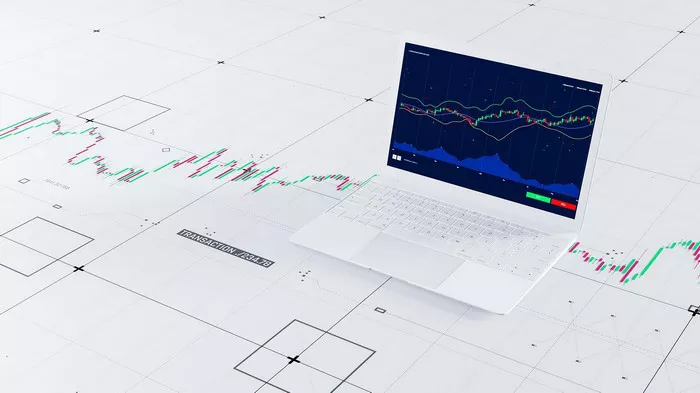The relationship between Thailand’s currency and the US dollar is a topic of significant interest for individuals, businesses, and travelers. Understanding the exchange rate between the Thai Baht (THB) and the United States Dollar (USD) is crucial for those involved in international trade, tourism, investment, and financial markets. In this article, we will explore the current exchange rate, the factors influencing it, and how it impacts various sectors of the economy.
Introduction to Thailand’s Currency
Thailand’s official currency is the Thai Baht, symbolized as ฿ and abbreviated as THB. The Baht is one of the most widely traded currencies in Southeast Asia, and its value against other global currencies, especially the US Dollar, fluctuates regularly due to various economic factors. Thailand’s currency has a long history, with its current form originating in 1897.
In order to understand how the Baht compares to the USD, it’s important to look at the basic mechanisms of currency exchange, how the exchange rate is determined, and the overall significance of the USD in global trade.
The Importance of the US Dollar
The US Dollar is considered the world’s primary reserve currency, meaning it is widely held by central banks and institutions for international transactions. The USD is used in numerous global transactions, including commodities like oil, and serves as a benchmark for many countries’ currencies.
The exchange rate between the Thai Baht and the US Dollar can be affected by the value of the USD in international markets. Therefore, understanding the fluctuation of the Baht against the USD is crucial for anyone looking to conduct financial transactions or investment activities involving Thailand.
Exchange Rate Between Thailand Baht and USD
The exchange rate between the Thai Baht (THB) and the US Dollar (USD) is determined by several factors, such as economic policies, global financial markets, and inflation rates. While this exchange rate fluctuates daily due to the nature of the foreign exchange (Forex) market, we will discuss the trends, causes of fluctuations, and its effects.
Historical Trends of the Baht to USD
Historically, the Thai Baht has seen significant fluctuations against the US Dollar, particularly during times of political or economic instability. For example, during the 1997 Asian Financial Crisis, the Baht saw a sharp depreciation as the Thai government was forced to abandon its currency peg to the US Dollar. This event was a turning point in Thailand’s foreign exchange policy and significantly impacted the relationship between the Baht and the USD.
Since the crisis, the Thai Baht has seen more stability but continues to fluctuate. The current exchange rate is influenced by a variety of factors, including Thailand’s economic performance, foreign investments, government policies, and changes in global financial markets.
Current Exchange Rate
As of the latest data, 1 US Dollar is worth approximately 35 to 36 Thai Baht. This is the general exchange rate, though it can vary slightly depending on the source, time of day, and market conditions. When converting currency for travel or business purposes, individuals should be aware of exchange fees and commissions charged by financial institutions.
The exchange rate is also impacted by government interventions. Thailand’s central bank, the Bank of Thailand (BOT), often takes steps to stabilize the Baht when necessary, but its value remains sensitive to changes in the global financial environment.
Factors Affecting the Baht/USD Exchange Rate
Economic Indicators
The strength of Thailand’s economy plays a significant role in determining the value of the Baht. Factors such as GDP growth, inflation, unemployment rates, and the country’s balance of trade can all influence how the Baht performs against the US Dollar. A strong economy with robust exports and stable domestic demand tends to support the value of the Baht, whereas a weakened economy may lead to depreciation.
Interest Rates and Inflation
Interest rates set by the Bank of Thailand and inflation rates in Thailand are key drivers of currency value. Higher interest rates often attract foreign investment, boosting demand for the Baht, which can lead to an appreciation against the US Dollar. Conversely, low interest rates and high inflation may lead to a weaker Baht.
Government Policies and Foreign Reserves
The Bank of Thailand, Thailand’s central bank, may intervene in the foreign exchange market to maintain a stable Baht/USD exchange rate. This could involve buying or selling Baht or using Thailand’s foreign reserves to manage fluctuations.
In addition, government policies, such as trade agreements and fiscal measures, also affect the currency’s performance. Trade surpluses or deficits can cause the Baht to rise or fall, depending on how much foreign currency enters or leaves the country.
Global Market Sentiment
Changes in global market sentiment, particularly regarding the US economy, can influence the USD’s strength and, in turn, affect the Baht. For instance, when the US economy is strong, the USD may appreciate, and this can lead to a depreciation of the Baht. Conversely, when global risk factors such as geopolitical tensions or financial crises affect the US economy, the Baht may see an increase in value.
Geopolitical Events
Thailand’s geopolitical position in Southeast Asia also plays a role in determining the Baht’s strength. Political stability within the country can enhance investor confidence, which strengthens the Baht, while political uncertainty or instability can cause the currency to weaken.
Exchange Rate Forecast
The Baht/USD exchange rate is forecasted to remain volatile in the short term due to the global economic uncertainties. Market analysts predict that the Baht may appreciate if Thailand continues to experience strong economic growth and favorable trade balances. However, if inflation rises or if there are significant global financial disturbances, the Baht may face downward pressure against the US Dollar.
It’s important to consider these projections as part of an informed strategy when dealing with currency exchange, especially for businesses involved in import/export or individuals planning trips to Thailand.
The Impact of Baht/USD Exchange Rate on Different Sectors
Understanding how the exchange rate between the Baht and USD impacts various sectors can provide valuable insights, particularly for businesses and individuals involved in international trade, travel, and investments.
1. Tourism Industry
Thailand is one of the most popular tourist destinations in Southeast Asia. The exchange rate plays a significant role in tourism because it directly affects the cost of travel for foreign visitors, particularly those from the US. A stronger Baht makes Thailand more expensive for US tourists, while a weaker Baht makes the country more attractive and affordable.
Changes in the exchange rate may also influence how much money tourists spend during their visit, affecting businesses in sectors like hospitality, retail, and food services. The exchange rate directly impacts the profitability of tourism-related businesses in Thailand, making it a critical factor to monitor.
2. Export and Import Businesses
For businesses that rely on imports and exports, the exchange rate between the Thai Baht and the US Dollar can significantly impact profitability. A stronger Baht can make Thai goods more expensive in international markets, potentially reducing export demand. Conversely, a weaker Baht can make Thai products more competitive, boosting export volumes.
On the other hand, importers in Thailand may face higher costs for goods priced in USD when the Baht weakens. This can lead to increased inflationary pressures on domestic prices, especially for products that rely heavily on imported materials.
3. Foreign Investment
Thailand has long been an attractive destination for foreign investors, with industries like manufacturing, technology, and agriculture drawing significant capital. A favorable exchange rate can encourage foreign investment by making Thai assets more affordable for investors holding USD. Conversely, a weakening Baht may deter investment, as returns in USD terms may be less attractive.
Foreign direct investment (FDI) flows into Thailand are heavily influenced by exchange rate movements, as investors seek to maximize returns while minimizing risks associated with currency fluctuations.
4. Real Estate Market
Thailand’s real estate market is another sector sensitive to fluctuations in the Baht/USD exchange rate. Many foreign investors are involved in property purchases in Thailand, particularly from countries like the US, where the exchange rate plays a role in the decision-making process. A weaker Baht makes property in Thailand more affordable for foreign buyers, potentially driving up demand in the real estate sector.
5. Remittances
Thailand is a major source of remittances, with many migrant workers sending money back to their home countries. A strong Baht means workers receive more value for their earnings when exchanging them into foreign currencies, which can increase the purchasing power of recipients. A weak Baht, on the other hand, may reduce the value of remittances sent home.
Conclusion
The exchange rate between the Thai Baht and the US Dollar is influenced by a variety of economic, political, and market factors. Understanding the relationship between these two currencies is essential for businesses, investors, and tourists alike. While the exchange rate fluctuates regularly, staying informed about its movements can help individuals and companies make better financial decisions.
The Baht/USD exchange rate is a dynamic aspect of global finance, and it will continue to play an important role in Thailand’s economic landscape. By carefully monitoring the factors that influence the exchange rate, stakeholders can better anticipate changes and take advantage of opportunities in the market.
In the end, staying informed and adapting to the fluctuations of the Baht against the USD is essential for anyone conducting business or traveling in Thailand. Understanding these shifts can provide a competitive edge in today’s globalized world.
Related topics:

































